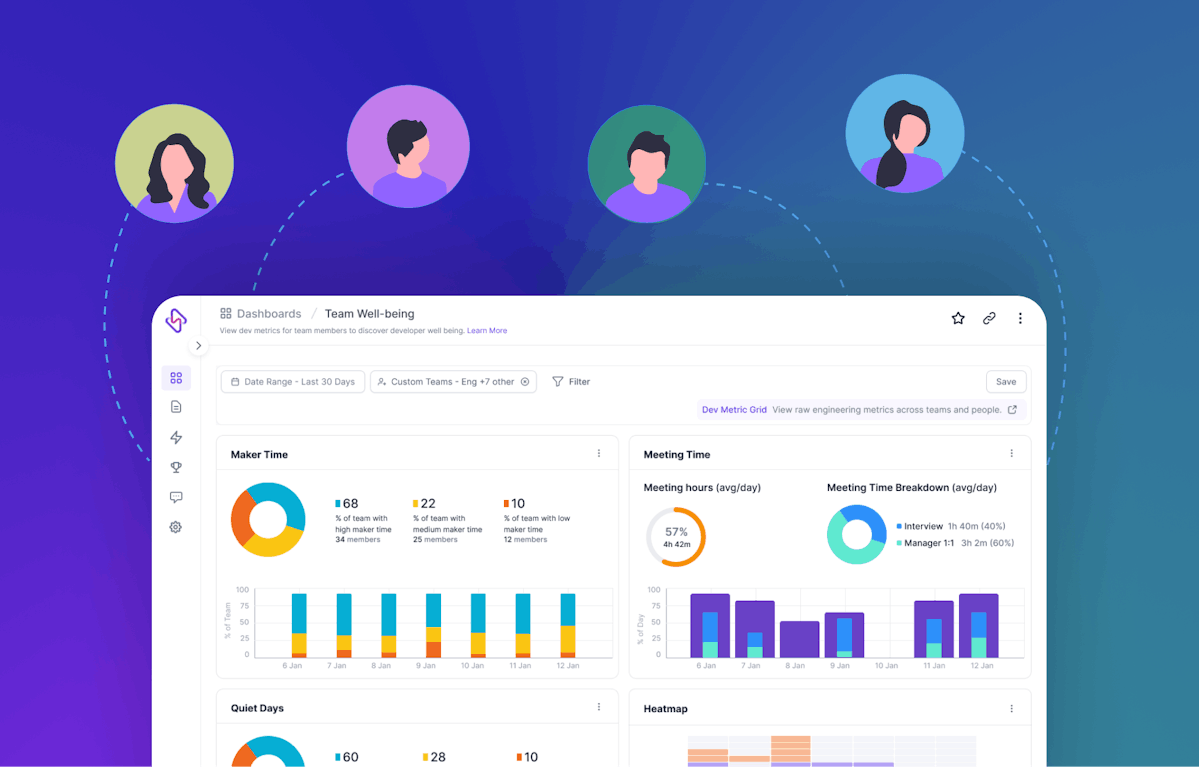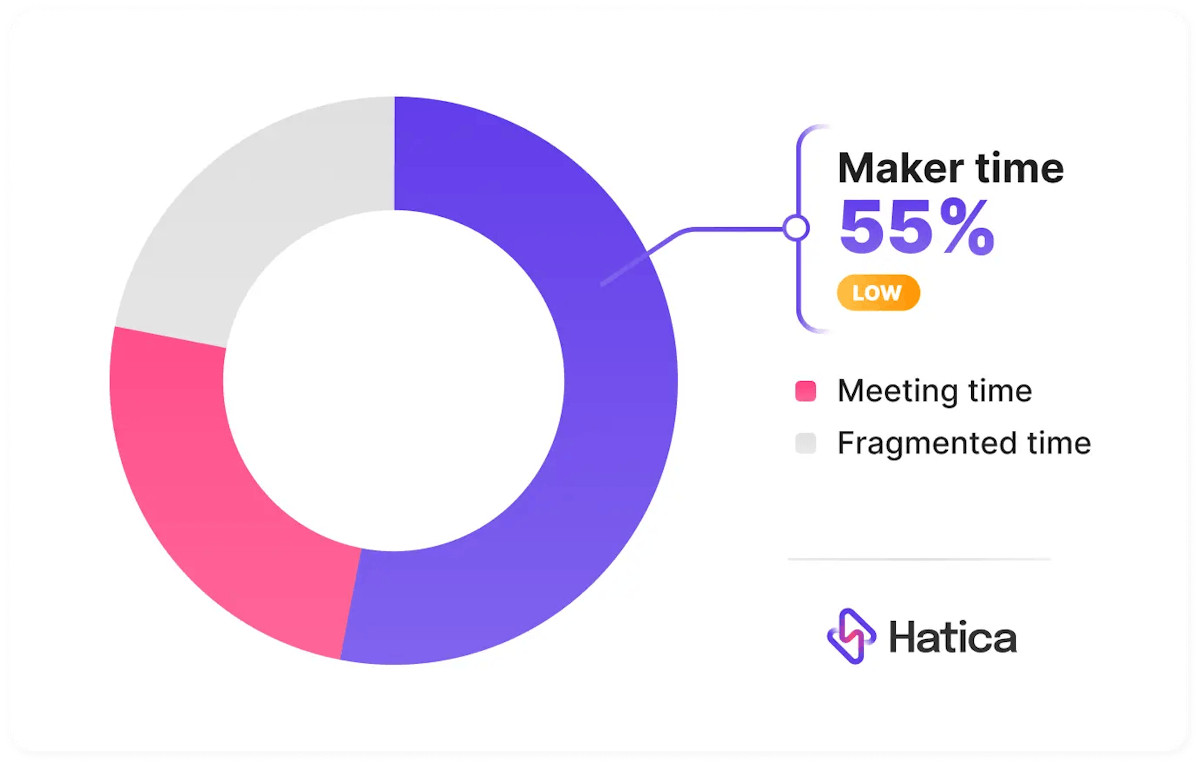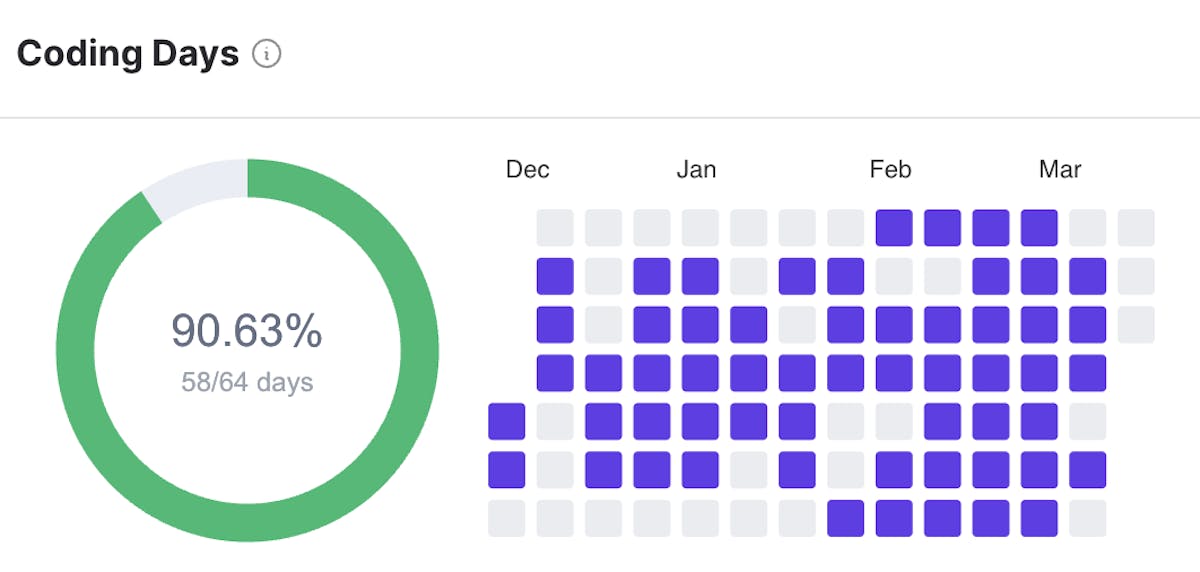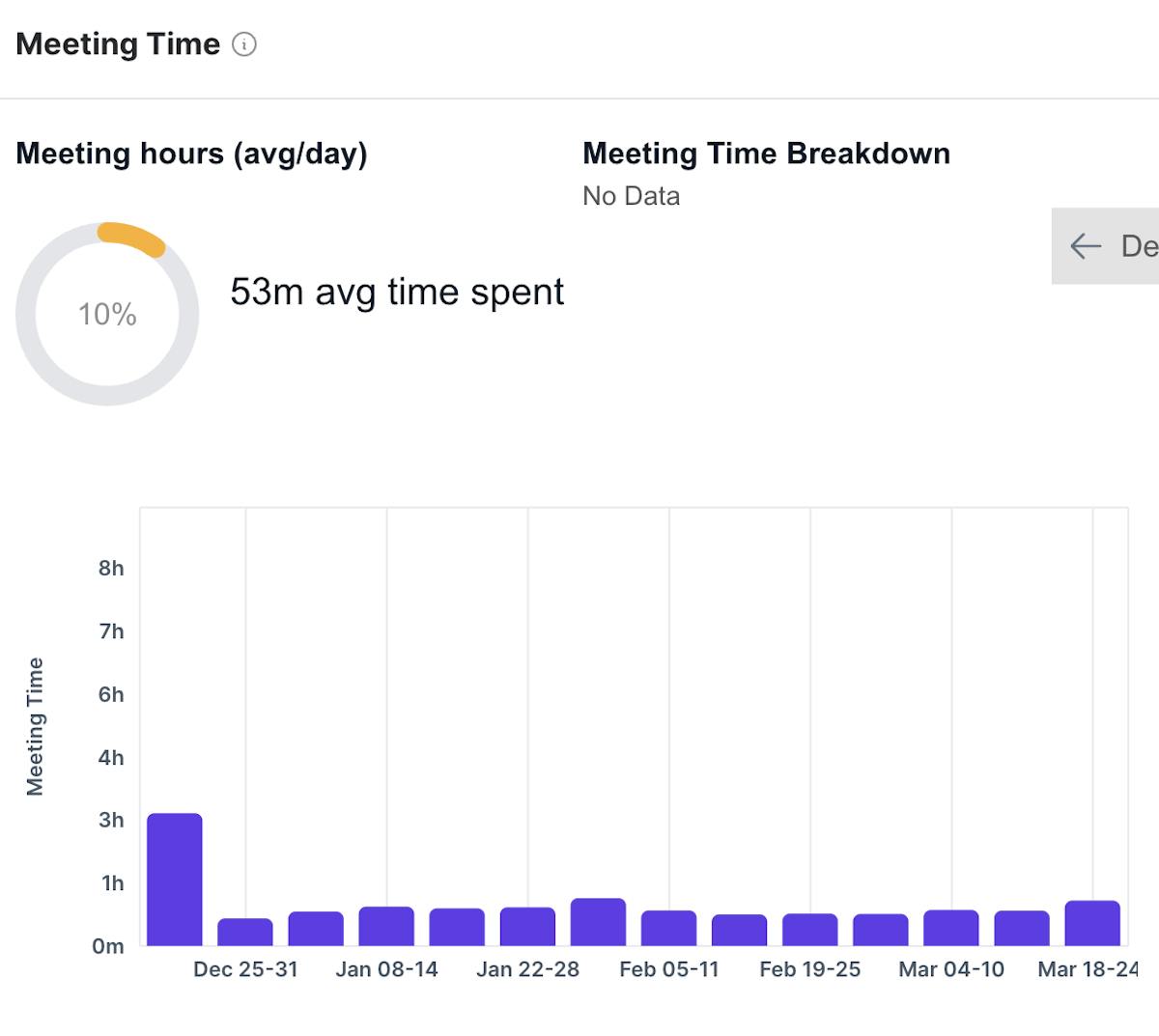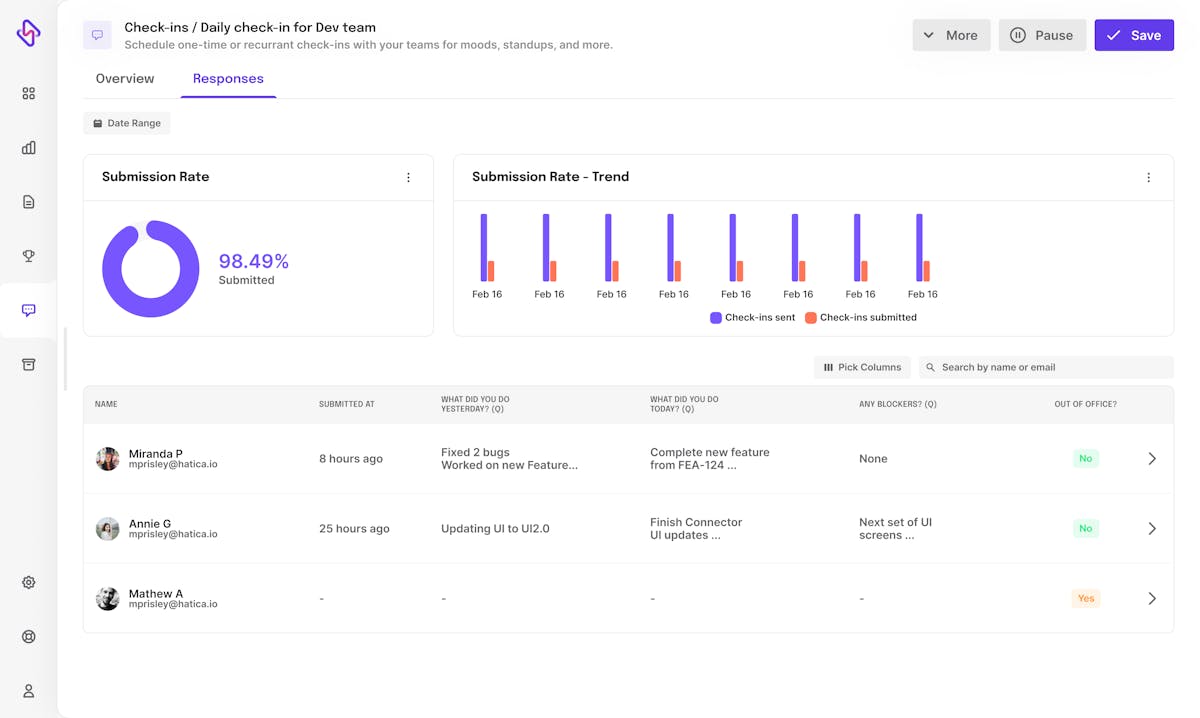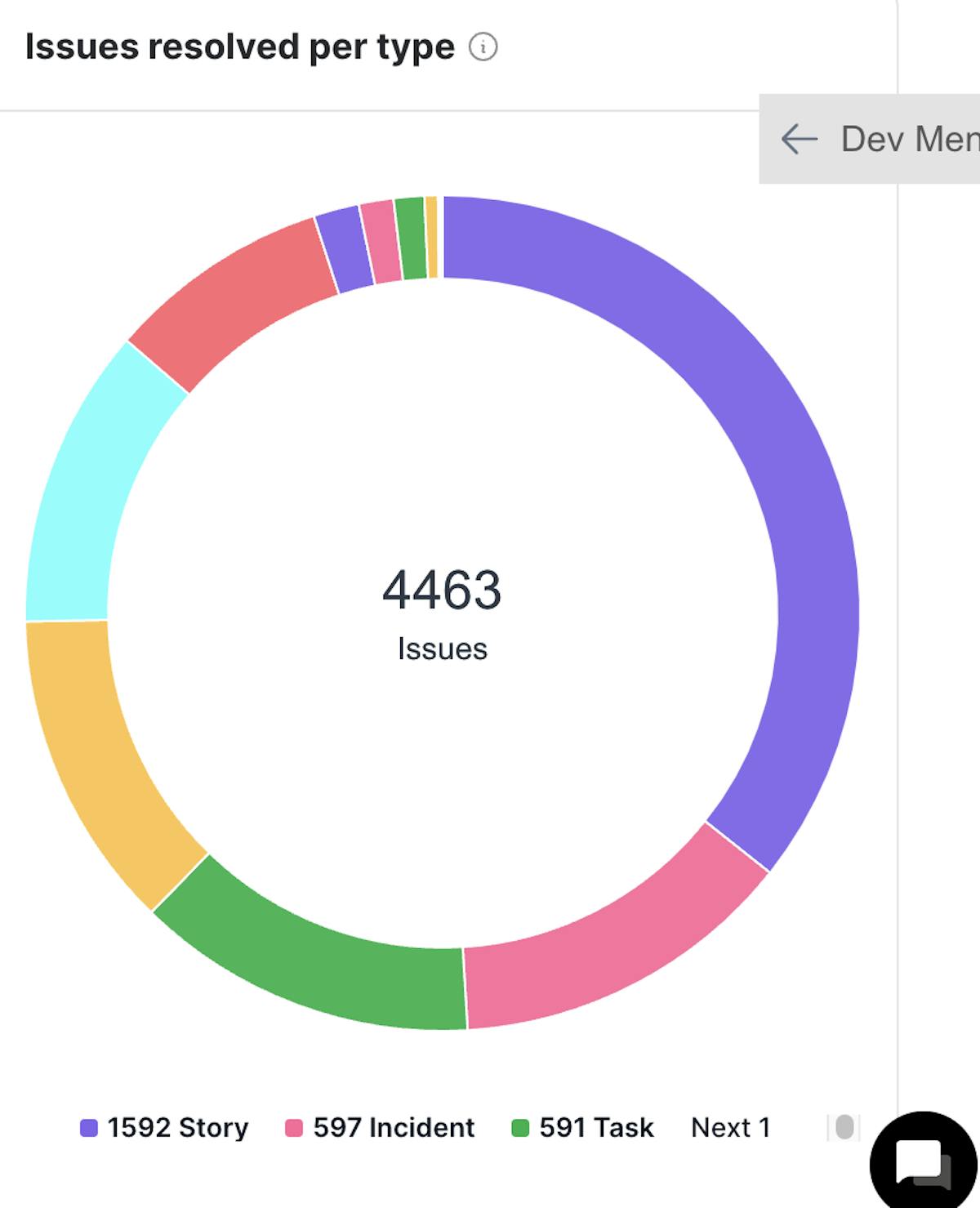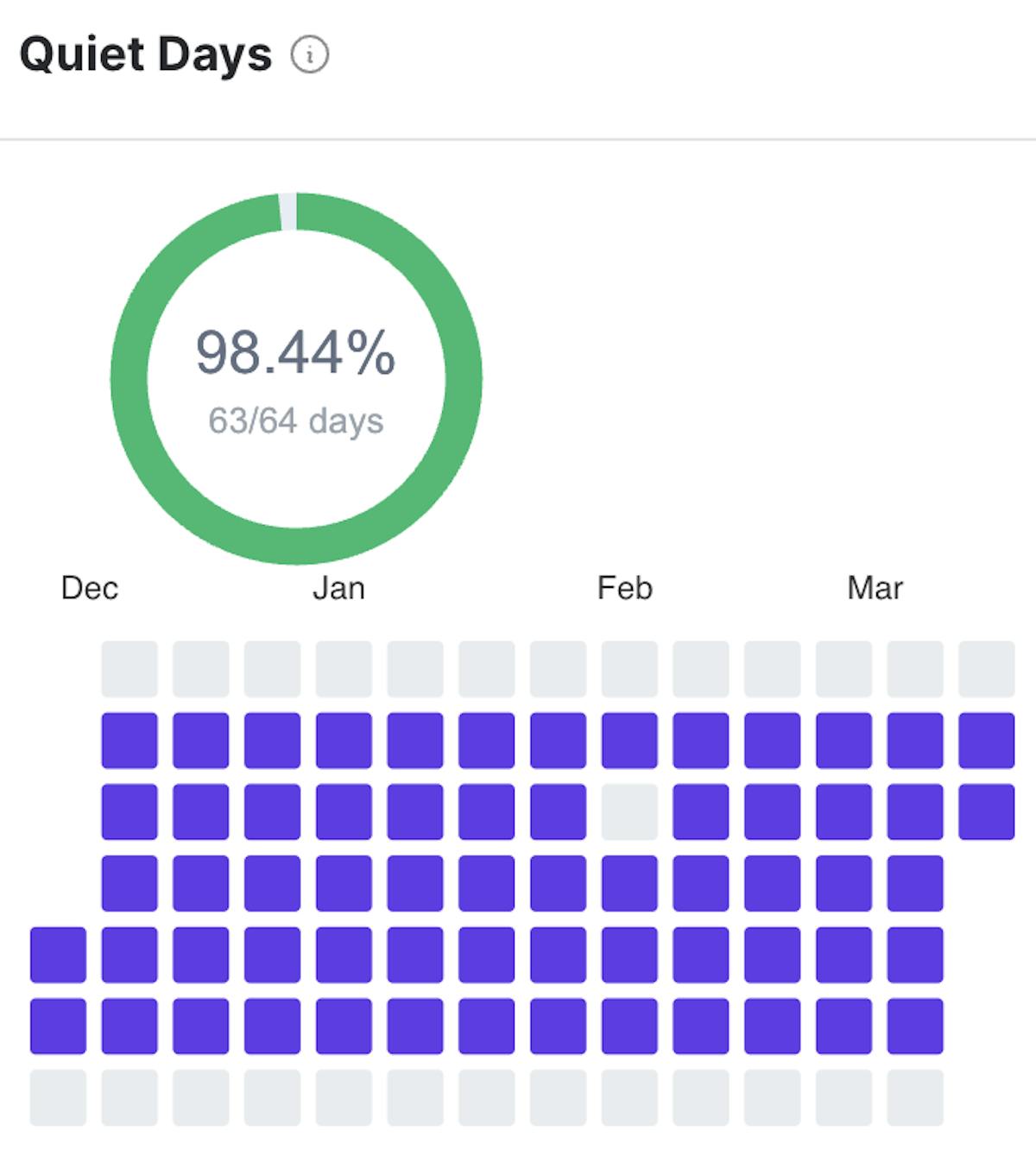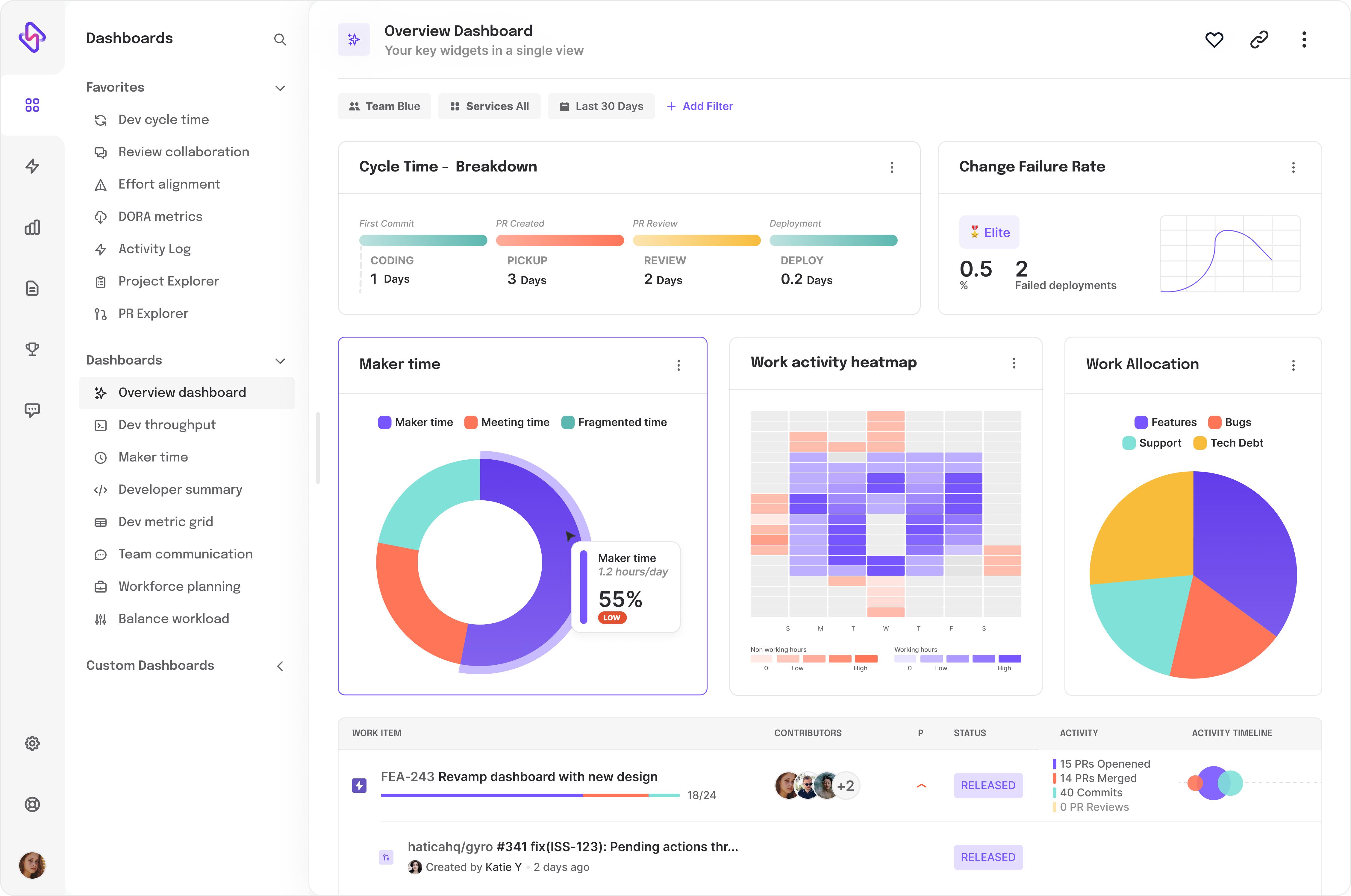Engineering teams thrive on their ability to innovate and keep delivering on demands with limited resources. But what fuels that innovation? Happy, healthy, and well-supported developers.
Although globally organizations have improved their investments in employee health and well-being initiatives, they still lack a data-driven approach to check in with their team. The human cost of ignoring developer health & well-being is too high to calibrate: An engaged, and happy workforce ups overall productivity by 20% and saves $320 billion annually that companies are essentially losing to burnout blues as of now.
Besides, engineering managers too often struggle with granular visibility into team dynamics, developer happiness, and time spent in meetings vs time spent in actually coding, and grooming.
This creates a vicious cycle of high attrition, low time spent in coding, knowledge loss, and developer burnout. It’s just not an engineering manager’s problem, it's a business problem. Before your team hits critical mass burnout and a dwindling bottom line, let's shift the narrative.
Hatica’s data-informed well-being platform steps in as your partner in running daily team health checks and combatting burnout, improving people's health, and identifying early signs of productivity loss.
What Is a Team Health & Well-Being Check?
Team health check is a power tool for engineering managers to understand the impact of engineering activities on developer health. It's like a regular checkup for your engineering team, helping identify strengths, red flags bothering your developer’s well-being, and areas for improvement.
This could include measuring active coding time, communication hours, collaboration, morale, trust, workload, decision-making, and overall effectiveness. The idea of running a health & well-being check is to identify burnout trends, recognize their engineering work, understand the impact of workload, and how happy, and satisfied they are with the current workflow.
Why Should You Do Team Health Checks?
Just like you wouldn't neglect your physical health, regular team health checks are essential for ensuring your team is functioning at its best. Here are some reasons to run a health check with your engineering team:
- Early detection of stress signs like burnout, low coding hours, and workload imbalance before they escalate into major productivity regressions.
- Find and remove inefficiencies in development workflow by identifying bottlenecks in collaboration, communication overhead, or knowledge silos. Ignoring health and well-being investment means:
- Regular health checks are a platform for constructive feedback, fostering team cohesion and appreciation. This translates to a more engaged workforce, willing to go the extra mile and collaborate without hurdles.
- Unhappy developers often jump ship. Team health checks help you identify and address issues that contribute to low morale and dissatisfaction so you can work towards reducing talent churn and retaining your valuable engineers.
- Team health checks go beyond team-level assessments. They also provide valuable feedback for your IC’s growth and development, and help you to run more personalized and data-driven 1:1s. This leads to more well-rounded and future-proof engineers.
- Improve developer experience by capturing the satisfaction index of developers and how work affects their health and well-being, and the team culture impacts individual productivity.
Running an Engineering Team Health & Well-Being Checkup With Hatica
Hatica’s engineering management platform offers factual operational visibility into your engineering teams, processes, and technology, and measures the progress of engineering work using data-rich metrics like coding activity, code review durations, deployment frequency, incident response times, meeting time, etc.
Today, 600+ global engineering teams are deploying Hatica as their go-to tool to make data-driven decisions that create a supportive, productive, and healthy development environment without compromising on business alignment, software delivery, or quality.
Here’s how we are helping engineering leaders run regular health and well-being checks:
1. Protect the Focus Time of Developers
From Slack pings to commit notifications, the constant barrage of interruptions disrupts focus and productivity. Did we tell you a developer spends 30 minutes before finding their focus streak back? Imagine the opportunity cost (both human and capital) everytime a dev’s focus is disturbed, and they have to switch from writing a codebase to attending a meeting or participating in daily standups.
Hatica helps you give focus and support to your developers so they have enough time on their hands to code and groom. Our maker time metrics protects deep work hours of engineers by reserving 120 minutes of focus slots so they can run code, and build apps without adopting the “always on” culture.


